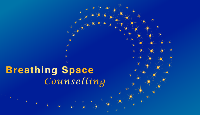

Locus of Control - which one are you?
Have you heard this term before? Is a Locus related to a locust? Well…. no! A locus in this instance is where you feel the control of your life and your decision making comes from. Is it from you or is it from someone or something else?
If a person tends towards an internal locus of control, that person attributes success to his or her own efforts and abilities. Conversely, if they fail at something, this is attributed to their own lack of effort or decisions they have made.
A person who tends towards an external locus of control attributes their success or failures to others, luck or fate and are more at risk of developing depression or anxiety, as one of their core beliefs is that they do not have control in their life.
Being aware if you have an internal or an external locus of control in your life is very helpful in deciding if you can do anything to change things which are not working for you. Have you found yourself ever thinking…
“It’s not fair”
“It wasn’t my fault”
“He/She should have known better than to do that to me”
“It’s all his/her/their fault.”
Which locus of control type is this?
Locus of control is linked to our development. As small children we learn that life can be unfair at times. As we mature and our emotions become more regulated, we can view events more objectively and apply adult reasoning to the why and how an event occurs.
For instance, as a child if a peer was picked to be a school monitor we think “that’s not fair, I should have been the monitor!”
As an adult, if a co-worker is chosen for a promotion over you, you could choose an ‘external’ locus of “that’s not fair,” or choose an ‘internal’ locus and reflect on why they were chosen instead of you. What skills, attributes and experience does the other person have that perhaps are still developing in you? What other organisational factors may have influenced this decision?
Having an internal or external locus of control is neither a bad nor a good thing, but is a way of looking at the world and your perceptions of it. We can all flip between internal and external depending on the situation. I can start off with an external locus when an upsetting event occurs for me, then after a while can begin to see what I contributed to the situation in my decision making and choice of words. Taking ownership for your part in events is an aspect of emotional maturity which serves everyone well. It is the ability to objectively apportion who is responsible for what in a situation and allocate your bit of responsibility to it, instead of 100% blaming others.
Do you think you tend towards an internal or an external locus of control?
One disadvantage of choosing an external locus of control is that it can place the person into ‘victimhood,’ where events happen to them. The risk of habitually feeling sorry for yourself and not being in control can setup perceptions of helplessness and passivity. Eeyore, An A.A. Milne character in Winnie the Pooh gives us a classic external locus perspective:
“It’s your fault, Eeyore. You’ve never been to see any of us. You just stay here in this one corner of the Forest waiting for the others to come to you. Why don’t you go to THEM sometimes?” (from The House at Pooh Corner)
An internal locus of control may assist you to feel more in control of your life and the decisions you make. Owning past mistakes helps us to move forward and learn to not repeat them. If it is always someone else’s fault then we do not take responsibility for our actions, and risk repeating the same dysfunctional pattern again.
Whichever locus of control you tend towards you can choose to change it if it does not serve you well. This means becoming aware of what your tendencies are and what self talk you habitually tell yourself. You could:
- Monitor your thoughts for the next week and see if you find yourself repeating the same mantra about situations.
- Reflect on any occasions in your life when you have felt let down by others or have fallen out with someone. Can you see if any of your actions (or non-actions) may have contributed to that situation?
- Once you identify where you sit on the internal/external continuum, decide if you would like things to change for you. If so, see if you can change thoughts which start with… “he/she should” to “I could.” If so, you will find you feel much more in control of your life and decision making.
Take the locus of control quiz here.
Hold down the control button on your keyboard and click on the link. You do not need to agree with the options given just choose the one you least disagree with! Your score will tell you whether you tend towards an internal or external locus of control.
http://www.psych.uncc.edu/pagoolka/LC.html
Source: Locus of Control quiz based on JB Rotter (1966) Generalized expectancies for internal versus external control of reinforcement. Psychological Monographs, 80 (1, Whole No. 609).
Janice White, Copyright Breathing Space Counselling

- Business Name
- Breathing Space Counselling
- Business Category
- Counselling & Mental Health
- Official Website
- breathingspacecounselling.com.au
- Business Number
- 64162701583
- Social Links
- Phone Number
- 0423915389
- Business Location
- 42 Camelia Ave
Mount Claremont 6010
Western Australia
Australia

